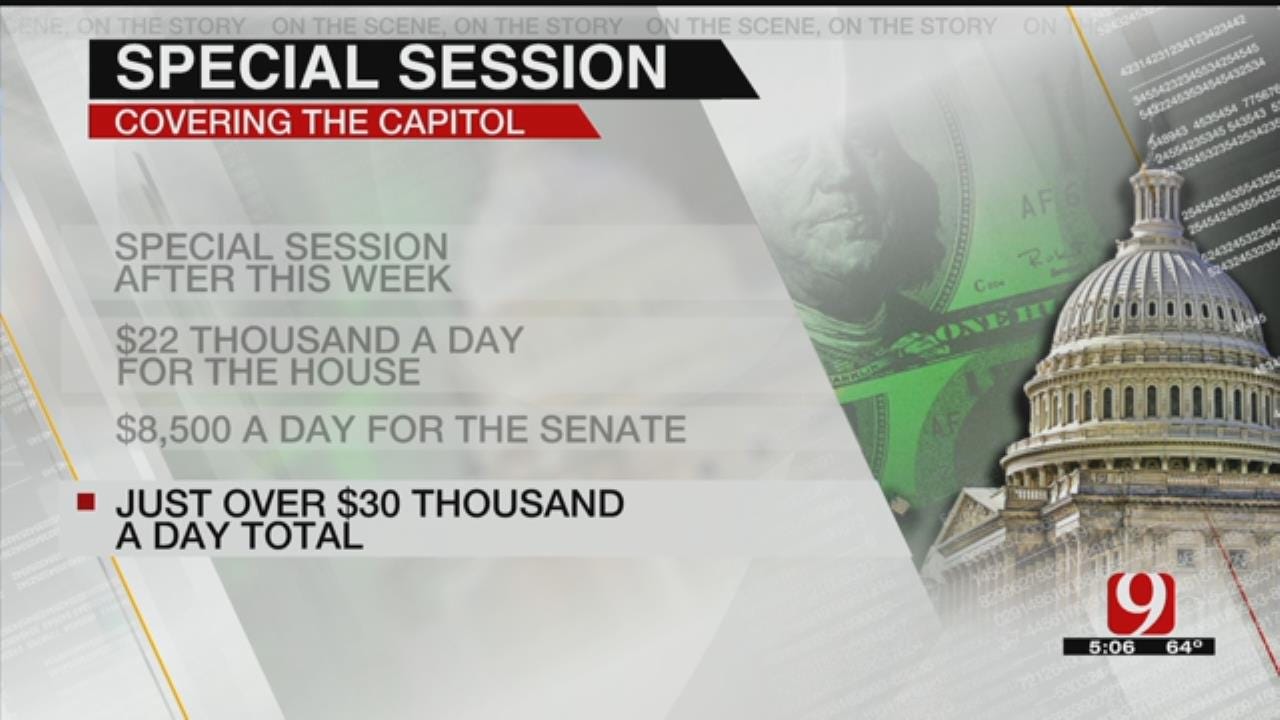Special Legislative Session Could Deepen Budget Deficit Lawmakers Need To Fill
<p>When state lawmakers walked away Saturday from a rare weekend legislative session, without a deal on the budget, it all but guaranteed that they will have to complete their work in a special session. That possibility would further deepen the budget hole they are trying to fill.</p>Monday, May 22nd 2017, 6:36 pm
When state lawmakers walked away Saturday from a rare weekend legislative session, without a deal on the budget, it all but guaranteed that they will have to complete their work in a special session. That possibility would further deepen the budget hole they are trying to fill.
The regular session of the Oklahoma Legislature ends Friday. State law requires that any measure that would raise new revenue be approved at least a week prior to the end of the regular session, which didn't occur.
Although it's possible, in theory, that lawmakers could approve a budget that includes none of the new revenue measures that have been proposed -- increases in the cigarette, fuel, and gross production taxes -- it is highly unlikely, considering the size of the estimated revenue shortfall, $900 million.
Parliamentary rules do allow the governor to call for a concurrent special session, which would take place this week and would allow lawmakers to act on the various revenue measures. Many Capitol observers believe this will happen, although, as of late Monday afternoon, Gov. Mary Fallin had not yet authorized a concurrent special session.
If lawmakers are still unable to reach an agreement on a budget before adjournment Friday, then a true extraordinary session will be needed, and that will cost taxpayers extra.
According to House and Senate officials, it would cost about $30,700 per day ($22,200 for the House and $8,500 for the Senate) to conduct a special session.
The last time Oklahoma lawmakers went into special session was for five days in 2013. The last time lawmakers went into special session, specifically, due to an inability to reach agreement on a budget was in 2006. That session lasted three days.
More Like This
November 13th, 2024
October 28th, 2024
October 17th, 2024
Top Headlines
December 26th, 2024
December 26th, 2024
December 26th, 2024










